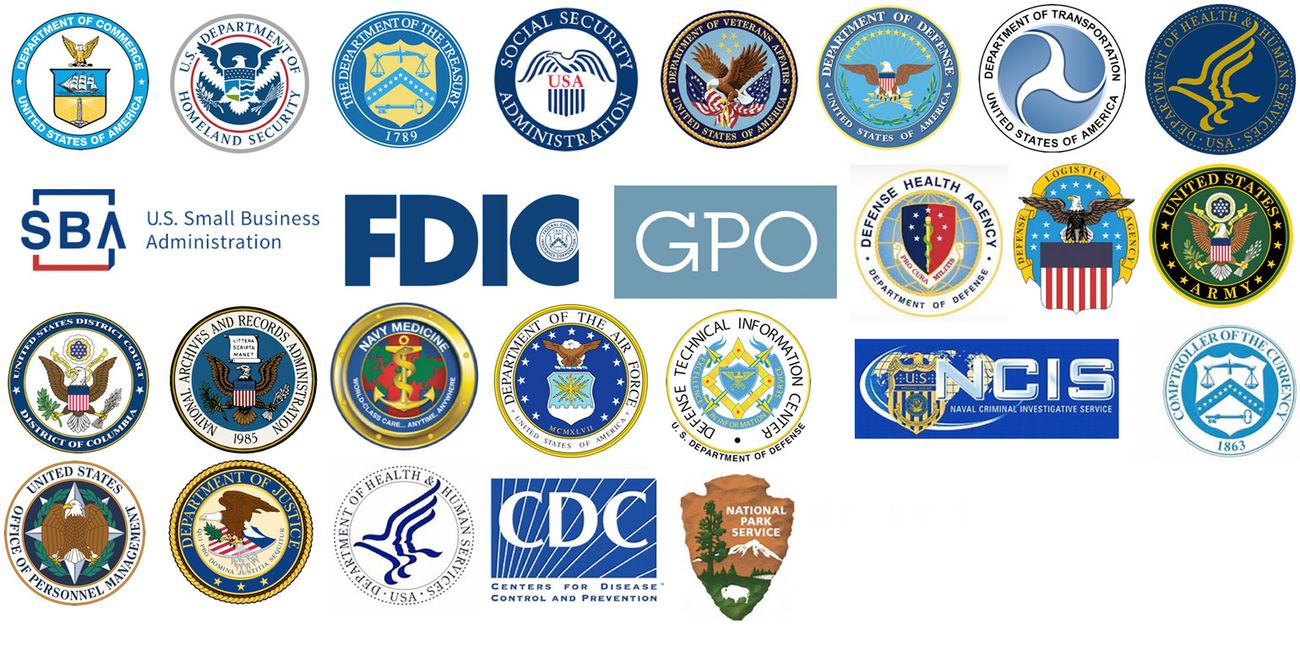
Ever wondered how government agencies impact your daily life? From ensuring public safety to regulating industries, these entities play a crucial role in maintaining order and providing essential services. Government agencies are specialized organizations created by a government to enforce laws, manage public resources, and oversee various sectors. They operate at different levels, including federal, state, and local, each with unique responsibilities. For instance, the Environmental Protection Agency (EPA) works to protect human health and the environment, while the Federal Communications Commission (FCC) regulates interstate and international communications. Understanding these agencies can help you appreciate the intricate systems that keep society functioning smoothly. Ready to learn more? Let's dive into 34 intriguing facts about these vital institutions!
Key Takeaways:
- Government agencies, like the FBI and NASA, play vital roles in society, from protecting the environment to advancing scientific research. They face challenges but also drive innovation and progress.
- Around the world, agencies like the UK's NHS and Japan's Ministry of Health serve unique purposes, showing the diverse impact of government institutions. As society changes, these agencies must adapt and innovate for the future.
The Role of Government Agencies
Government agencies play a crucial role in maintaining order, providing services, and ensuring the well-being of citizens. These agencies operate at various levels, from local to federal, and cover a wide range of functions. Here are some intriguing facts about these vital institutions.
- The United States has over 430 federal agencies and sub-agencies.
- The Environmental Protection Agency (EPA) was established in 1970 to protect human health and the environment.
- The Federal Bureau of Investigation (FBI) was founded in 1908 and initially had only 34 agents.
- The National Aeronautics and Space Administration (NASA) was created in 1958 in response to the Soviet Union's launch of Sputnik.
- The Social Security Administration (SSA) manages the largest social welfare program in the U.S., serving over 60 million beneficiaries.
Historical Milestones
Government agencies have evolved significantly over time, adapting to new challenges and societal needs. Some of these milestones have shaped the modern landscape of public administration.
- The U.S. Postal Service (USPS) was established in 1775, making it one of the oldest government agencies.
- The Department of Homeland Security (DHS) was created in 2002 following the September 11 attacks to coordinate national security efforts.
- The Food and Drug Administration (FDA) was founded in 1906 to regulate food and pharmaceuticals.
- The Centers for Disease Control and Prevention (CDC) was established in 1946 to combat malaria.
- The National Park Service (NPS) was founded in 1916 to manage and preserve national parks and monuments.
Functions and Responsibilities
Government agencies have diverse responsibilities, from law enforcement to public health. Each agency has a specific mandate to serve the public interest.
- The Internal Revenue Service (IRS) collects over $3 trillion in taxes annually.
- The Federal Emergency Management Agency (FEMA) coordinates disaster response and recovery efforts.
- The Bureau of Alcohol, Tobacco, Firearms, and Explosives (ATF) enforces federal laws related to firearms and explosives.
- The National Security Agency (NSA) is responsible for global monitoring and data collection for intelligence and counterintelligence purposes.
- The Department of Education oversees federal funding for schools and enforces education laws.
Innovations and Achievements
Government agencies have been at the forefront of many technological and scientific advancements. Their contributions have had a lasting impact on society.
- NASA's Apollo program successfully landed humans on the moon in 1969.
- The National Institutes of Health (NIH) has been instrumental in medical research, leading to breakthroughs in treatments for diseases like cancer and HIV/AIDS.
- The Department of Energy (DOE) has advanced research in renewable energy and nuclear technology.
- The U.S. Geological Survey (USGS) developed the first topographic maps of the United States.
- The National Weather Service (NWS) provides critical weather forecasts and warnings to protect lives and property.
Challenges and Controversies
Despite their achievements, government agencies often face challenges and controversies. These issues can impact their effectiveness and public perception.
- The IRS has faced criticism for its handling of tax-exempt status applications.
- The TSA has been scrutinized for its airport security procedures and effectiveness.
- The EPA has been involved in debates over environmental regulations and their economic impact.
- The FBI has faced controversies related to surveillance and civil liberties.
- The VA has been criticized for delays in providing healthcare to veterans.
International Perspectives
Government agencies around the world operate under different systems and face unique challenges. Comparing these agencies can provide valuable insights.
- The UK's National Health Service (NHS) is one of the largest single-payer healthcare systems globally.
- Canada's Royal Canadian Mounted Police (RCMP) serves as both a federal and national law enforcement agency.
- Japan's Ministry of Health, Labour, and Welfare oversees public health, labor standards, and social welfare programs.
- Germany's Federal Office for Migration and Refugees (BAMF) manages immigration and asylum processes.
- Australia's Commonwealth Scientific and Industrial Research Organisation (CSIRO) is a leading scientific research agency.
Future Directions
As society evolves, government agencies must adapt to new challenges and opportunities. Future directions may include technological advancements, policy changes, and increased collaboration.
- The DHS is investing in cybersecurity to protect against digital threats.
- NASA plans to return humans to the moon and eventually send astronauts to Mars.
- The FDA is exploring the regulation of emerging technologies like gene editing and artificial intelligence.
- The CDC is enhancing its global health initiatives to prevent pandemics.
Fascinating World of Government Agencies
Government agencies play a crucial role in shaping our daily lives. From ensuring public safety to regulating industries, these entities work tirelessly behind the scenes. They manage everything from environmental protection to national security, making sure society runs smoothly. Understanding their functions can help us appreciate the complexity and importance of their work.
Next time you hear about the EPA or the FBI, you'll know a bit more about what they do and why they matter. These agencies are the backbone of our government, providing essential services that keep our country running. So, whether it's the CDC fighting diseases or NASA exploring space, government agencies are always at work, making our world a better place.
Keep these facts in mind, and you'll have a greater appreciation for the unsung heroes of our government.
Frequently Asked Questions
Was this page helpful?
Our commitment to delivering trustworthy and engaging content is at the heart of what we do. Each fact on our site is contributed by real users like you, bringing a wealth of diverse insights and information. To ensure the highest standards of accuracy and reliability, our dedicated editors meticulously review each submission. This process guarantees that the facts we share are not only fascinating but also credible. Trust in our commitment to quality and authenticity as you explore and learn with us.


